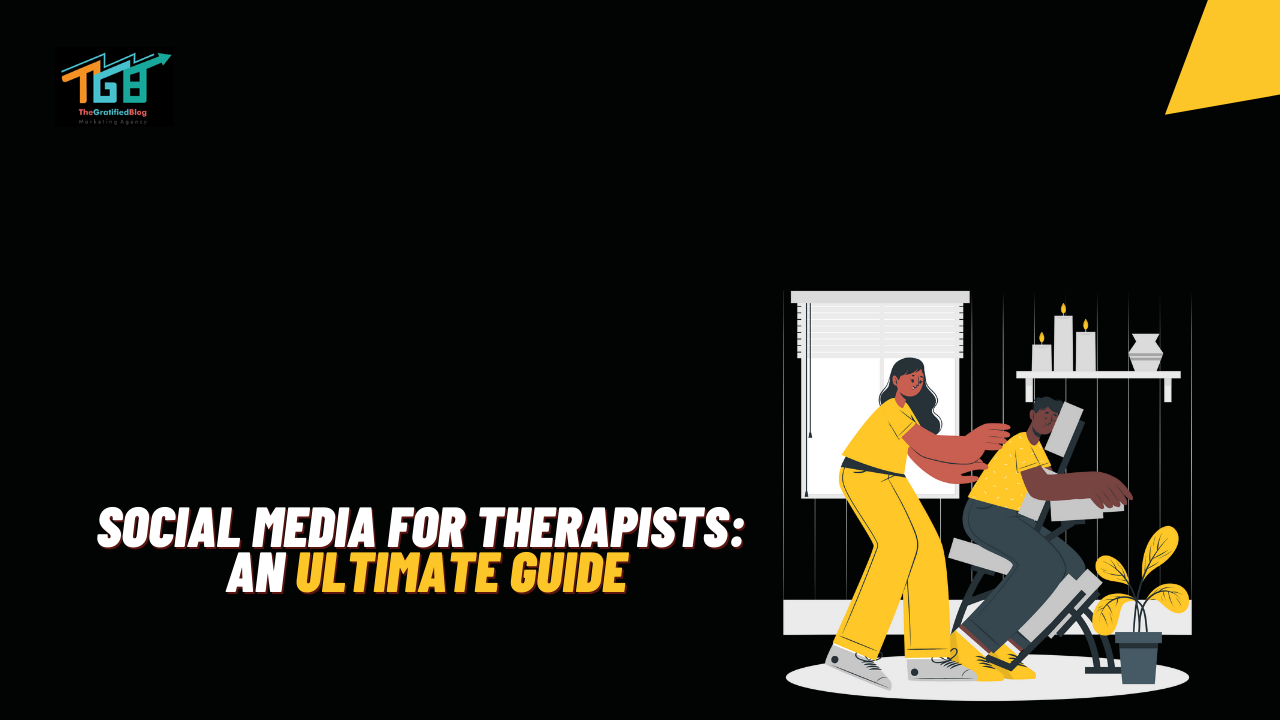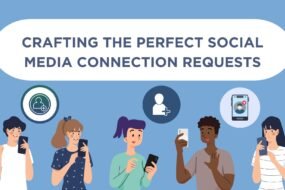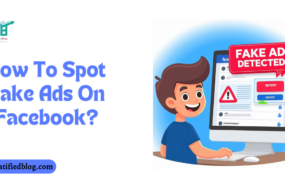
In today’s digital age, social media has become integral. The internet has transformed our daily existence, reshaping how we communicate, establish connections, and exchange information. Social media presents a unique opportunity for therapists to engage with clients, build a professional network, and raise awareness about mental health issues.
However, using social media as a mental health professional requires careful consideration and adherence to ethical guidelines. This blog will explore social media for therapists in detail, its benefits, and some tips to incorporate it effectively into their practice.
Why Use Social Media For Therapists?
Using social media for therapists has become increasingly important in today’s digitally connected world. It offers a platform for therapists to reach a wider audience, extending their therapeutic influence beyond the confines of their physical practice.
It facilitates valuable engagement with clients and potential clients, allowing them to share insights, resources, and educational content. Social media provides an opportunity for therapists to destigmatize mental health issues and promote awareness through thought-provoking posts.
It also enables therapists to stay updated on the latest developments in the field and connect with colleagues, fostering a sense of professional community.
Social media can be a medium for sharing client testimonials and success stories and building trust and credibility. It allows therapists to demonstrate their expertise and unique approach, setting them apart in a competitive landscape.
Effective leveraging of social media can enhance a therapist’s visibility, impact, and therapeutic practice.
Why Is Social Media A Great Option For Therapists
Social media offers numerous benefits for therapists, such as:
Increased Reach And Accessibility
Social media provides therapists a powerful platform to broaden outreach and enhance accessibility.
By leveraging the benefits of social media for therapists, such as Facebook, Twitter, Instagram, or LinkedIn, therapists can connect with potential clients who may not have otherwise sought therapy.
It allows therapists to break through geographical boundaries and engage with individuals in regions with limited connectivity or remote areas—therapy services.
Through their presence on these platforms, therapists can share valuable insights and mental health tips and even offer virtual counseling sessions to cater to the needs of a broader and diverse audience.
Community Building And Support
Social media enables therapists to create online communities and support networks for individuals facing similar mental health challenges.
These communities can provide a feeling of being part of something understanding and validation for individuals who may feel isolated or stigmatized.
Therapists can facilitate discussions, share resources, and provide guidance to foster a supportive environment where individuals can openly express themselves and receive peer support.
Education And Awareness
Social media provides an excellent platform for therapists To educate the public on mental health, reduce stigma, and promote awareness of various psychological issues.
Through social media, therapists can share informative articles, videos, infographics, and other resources to help people better understand mental health conditions, coping strategies, and the benefits of seeking therapy.
Leveraging social media for therapists allows them to address common misconceptions and provide accurate information, thus contributing to a more informed and empathetic society.
By utilizing platforms specifically designed for social media for therapists, such as dedicated professional accounts or mental health-focused communities, therapists can maximize their reach and engagement with their target audience.
Therapeutic Content And Strategies
Social media allows therapists to share therapeutic content and strategies in bite-sized formats that can reach a broad audience.
By leveraging platforms specifically designed for social media for therapists, such as specialized communities and professional networks, therapists can create videos, podcasts, blog posts, or live Q&A sessions to share practical tips, coping techniques, and self-help exercises.
This content can serve as an extension of therapy, providing individuals with valuable tools and insights to manage their mental health effectively.
Utilizing social media platforms tailored to the needs of therapists allows them to showcase their expertise, establish credibility, and attract potential clients who resonate with their approach.
Also Read: Why Social Media For Dentists Is Important, and
Why Is Social Media For Chiropractors Important
now that you know why it is important for therapists, now let’s understand the best tips for them
Best Social Media Marketing Tips For Therapists

Social media holds significant potential for therapists to engage with prospective clients, disseminate valuable content, and build their online presence.
Effective social media marketing for therapists is essential To engage a broader audience and create significant connections and relationships with individuals seeking therapy services.
Here are the best social media marketing tips to help therapists leverage these platforms successfully:
Know Your Target Audience
Effective content creation, particularly in social media for therapists, hinges on thoroughly understanding your target audience.
By understanding their demographics and preferences, including and addressing the audiences, customize your content to strike a deeper chord with them.
This personalized approach enhances engagement and Increases the probability of transforming potential clients into devoted customers. Research their age, location, interests, and needs to gain valuable insights about the therapy field.
Utilize analytics tools to monitor user activity on social media platforms and refine your content strategy accordingly. Communicate in a language that speaks directly to their interests and concerns related to therapy and mental health.
Adapt your tone, style, and messaging to align with their preferences, ensuring that your social media presence becomes a valuable resource for them.
Connecting with your target audience in this specialized niche is the key to driving meaningful interactions and achieving your business goals as a therapist.
Create A Professional Profile
Ensure a captivating and polished presence on every social media platform you engage with. Employ a top-notch profile picture and compose an engaging bio that showcases your expertise and services.
Be consistent across platforms, reflecting your professional persona. Share valuable content and interact thoughtfully with your audience.
Cultivate a cohesive brand image that aligns with your goals. Supervise and control your online reputation, upholding a favorable perception and respectful online presence.
Utilize each platform’s unique features to maximize your visibility and reach. Stay updated on industry trends and integrate pertinent developments updates into your posts.
Consistently refresh your profile to showcase your most recent information, accomplishments, and endeavors. Embrace authenticity and transparency while building a robust and impactful online presence.
Choose The Right Platforms
Target the active social media platforms for your audience. Therapists commonly use Facebook, Instagram, LinkedIn, and Twitter.
Assess your audience’s preferences and tailor your presence accordingly. Engage with meaningful content and foster interactions. Utilize visuals and relatable posts to connect with clients.
Emphasize professionalism on LinkedIn and build a strong network. Leverage Facebook groups for community engagement and support.
Employ Instagram’s visual appeal for mental health awareness. Tweet informative snippets and participate in mental health conversations on Twitter. Stay consistent, authentic, and adaptable to grow your online presence effectively.
Provide Valuable Content
When utilizing social media platforms, it’s crucial to prioritize providing valuable content that can benefit others. One of the most impactful ways to do this is by sharing informative and helpful content concerning mental health.
With the rise in mental health awareness, offering coping strategies, self-care tips, and resources can make a significant difference in someone’s life.
Avoid the temptation of using social media solely for self-promotion. Instead, focus on engaging with your audience in a meaningful manner.
Encourage open discussions on mental health, offer support, and establish a secure environment for individuals to express their struggles and triumphs.
Remember, authenticity is critical. Share personal experiences, if comfortable, to connect on a deeper level with your followers. This genuineness fosters a sense of trust, making your content more impactful and relatable.
Use Visual Content
Incorporating eye-catching visuals like infographics, videos, and images can significantly boost the attractiveness and shareability of your social media posts.
Visual content possesses an extraordinary capacity to capture your audience’s attention, conveying complex information in a digestible and engaging manner.
Infographics are powerful tools for presenting data and statistics creatively, making them easier to understand and remember. Conversely, videos offer a dynamic and immersive experience, allowing you to tell stories, demonstrate products, or showcase behind-the-scenes glimpses.
Such content often fosters a deeper connection with your audience. Additionally, images can evoke emotions, making your message more relatable and memorable.
High-quality photos or illustrations can be used to highlight key points, adding an element of authenticity to your posts.
Ensure your visual content aligns with your brand’s tone and values, maintaining a consistent look and feel across different platforms.
Engage With Your Audience
Responding promptly to comments, messages, and inquiries shows that you value your followers and fosters community and trust.
Promote engagement by posing insightful questions that stimulate discussions, conducting engaging polls that pique their interests, and hosting live Q&A sessions to address their queries directly.
By actively participating in conversations, you’ll gain valuable insights into your audience’s preferences, needs, and pain points, helping you tailor your content to serve them better.
Acknowledging their feedback and incorporating their suggestions further strengthens the bond between you and your followers, making them feel appreciated and heard.
This level of engagement also enhances the likelihood of your content being shared, reaching a broader audience, and increasing your brand’s visibility.
Genuine engagement is not just about self-promotion; it’s about building meaningful relationships with your audience.
Showcase your authenticity and personality, and be transparent in your interactions. Demonstrating concern for your followers and their perspectives will create loyal advocates who organically support and promote your brand.
Maintain Professionalism
Always maintain a professional tone and avoid sharing personal or sensitive information about clients, especially when using social media for therapists.
When representing yourself or your business on platforms like Facebook or Twitter, projecting a positive and respectful image is essential. Remember that a diverse audience can view anything you post, including current and potential clients, colleagues, and employers.
Be cautious with your language and refrain from participating in heated arguments or controversial discussions that may reflect poorly on your professionalism and the reputation you are trying to establish on social media for therapists.
Instead, focus on sharing valuable insights, industry-related news, and helpful content that showcases your expertise and commitment to your field. Respond to comments and messages courteously and timely, even if the feedback is negative.
Address concerns privately, and never engage in public disputes. Displaying excellent customer service on social media, Building your reputation, and cultivating trust among your audience can be strengthened. This is especially important in the context of platforms designed for therapists.
Remember that social media platforms are continually changing, and what you post today can resurface in the future, potentially impacting your professional standing.
Take a moment to review your posts before sharing, ensuring they align with your professional values, goals, and the unique dynamics of social media for therapists.
Consistency Is Key
Consistency is vital when engaging your audience on social media for therapists. One of the most effective ways to achieve this is by establishing a regular posting schedule.
By consistently sharing content related to therapy and mental health, you create an expectation among your audience, leading to increased engagement and loyalty.
Consistency in posting on social media platforms designed for therapists helps you stay at the forefront of your audience’s minds. It ensures they anticipate and look forward to your updates, building trust and reliability.
When you consistently deliver valuable content tailored to the needs of your followers, you Establish credibility as an authoritative source of information within your niche.
Regular posting allows you to maintain a steady flow of communication with your audience, fostering a sense of community and encouraging interaction.
As your followers become accustomed to your presence, they actively participate in discussions related to your content, making your social media profiles a hub for valuable exchanges.
Consistency also plays a vital role in algorithmic visibility, as many social media platforms prioritize content from accounts that consistently post and engage with their audience.
By adhering to a consistent posting schedule on social media platforms for therapists, you increase your chances of reaching a wider audience of individuals seeking mental health support and gaining more exposure as a trusted therapist online.
Utilize Hashtags Strategically
Research and use relevant hashtags, such as “social media for therapists,” to increase the visibility of your posts. They can assist in broadening the reach of your content audience, acting as keywords that categorize and connect your posts with others on social media platforms.
By integrating popular and trending hashtags into your content, like #therapytips or #mentalwellness, you can tap into existing conversations and attract new followers interested in social media for therapists.
However, it’s crucial to ensure that the hashtags you choose, including #socialmediafortherapists, are relevant to your content and target audience.
Conducting thorough research on popular hashtags in your niche, including those related to social media platforms used by therapists, can provide valuable insights and help you tailor your posts effectively.
Creating unique and branded hashtags specific to your brand or campaign, such as #TherapyThroughScreens or #ConnectAndHeal, can further help establish your online presence and encourage user-generated content from therapists and clients.
Remember to keep your hashtag usage concise and focused, and avoid overcrowding your posts with excessive hashtags, as it may dilute your message and come across as spammy.
So, leverage the power of hashtags strategically, including those related to social media for therapists, to Boost the reach and interaction of your social media posts.
Monitor Analytics
Use social media analytics tools specifically designed for therapists to track the performance of your posts and campaigns.
This data will aid in comprehending which content resonates best with your audience on social media platforms created for therapists and adjust your strategy accordingly.
Analyzing the metrics such as engagement, click-through rates, and audience demographics on these therapist-focused social media channels enables you to identify patterns and trends.
You can fine-tune your content to maximize its impact and reach among therapists by gaining insights into your audience’s preferences within this specialized community.
Monitor key performance indicators closely (KPIs) like conversions, shares, and impressions within this therapist-centric social media environment to gauge the success of your social media efforts.
Regularly review and compare the data against your goals to measure your progress and make informed decisions. Remember to monitor your competitors’ performance within these therapist-specific platforms as well.
Benchmarking against industry standards on social media channels tailored for therapists can provide valuable context and help you identify areas for improvement.
Leverage the data to experiment with different content formats and posting schedules tailored to the therapist’s audience. A data-driven approach within social media for therapists Allows you to enhance your social media strategy and allocate resources more effectively.
Conclusion
I hope you understand why social media for therapists is essential and how to use it for professional growth and connecting with clients.
Whether you have just started or have been using social media for a while, it will help you maximize your impact and create meaningful connections with your online audience.
If you have any doubts about social media for therapists or want to learn more about it, feel free to get in touch. We will be happy to help you.
Thanks for reading 🙂








No Comments